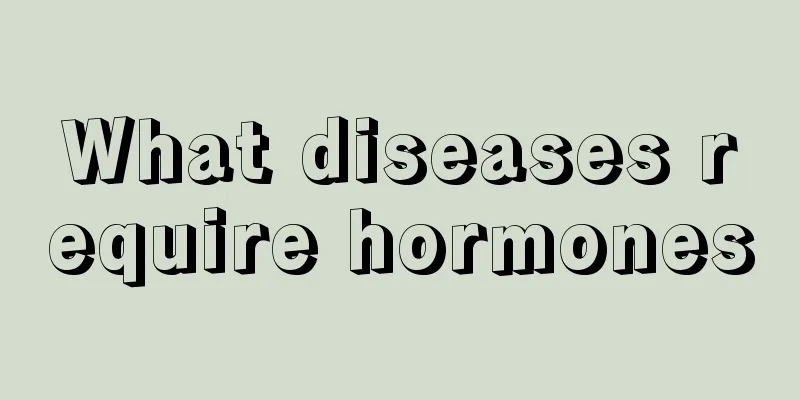Symptoms of varicose veins in the neck

|
The neck is the part that connects the head and the body. This part is very fragile, so it must be protected. There are many veins in the neck, so you must pay attention when varicose veins appear in the neck. The symptoms of varicose veins in the neck are very obvious, and the patient's condition is also very complicated, with varying degrees of severity, so it is important to pay attention to it during treatment. 1. Symptoms Internal jugular venous ectasia is mainly manifested as a cystic swelling in the lower 1/3 of the right neck and is common in children. The bulge is obvious during the Valsalva maneuver (closing the mouth and nose and taking a deep breath to examine the Eustachian tube), so it is often the first thing discovered by the otolaryngologist. In daily life, when you hold your breath, cry, sneeze, or bend over, the bulge will become obvious; when you relax, the bulge will disappear. The bulge is located at the posterior edge of the sternocleidomastoid muscle. When pressed from top to bottom with the hand, the swelling becomes significantly smaller or even disappears. Sometimes a venous bruit can be heard, but there is no pulsation, no pain, and no blowing arterial bruit. 2. Disease situation Internal jugular phlebectasia is rare in clinical practice. So far, there are 48 confirmed cases in the literature available abroad, and the actual clinical incidence is definitely higher than this number. The incidence rate in males is significantly higher than that in females. Among the 48 cases, 39 were males and 9 were females, with a male-to-female ratio greater than 4:1. The disease is more common in children, with 38 cases under the age of 10, accounting for 79.2%. Older patients can also be traced back to a history of childhood onset. The disease occurred on the right side in 38 cases, on the left side in 5 cases, and on both sides in 5 cases. Dilatation of the internal jugular vein occurs primarily in the lower 1/3 of the internal jugular vein, and similar dilatation may also occur in the external jugular vein, anterior jugular vein, and posterior facial vein. 3. Treatment Whether treatment is needed depends on the clinical symptoms of the disease and its impact on aesthetics. Since this disease causes no special subjective discomfort and there have been no reports of internal jugular vein dilatation and rupture, conservative observation should be the main approach currently advocated. If surgical treatment is feasible due to the impact on aesthetics, the operation requires an incision of the skin above the clavicle, exposure of the internal jugular vein, and ligation and severance. If the position is too low, the sternum needs to be split. Therefore, before surgery, both doctors and patients need to carefully consider whether the swelling of the lower neck during breath holding alone has a greater impact, or whether the postoperative scar and possible complications have a greater impact. Surgical resection of bilateral internal jugular vein dilatation can cause cerebral edema, which is a high risk. In this case, dilated vein wrapping and compression surgery can be performed. |
<<: Why is my neck swollen and uncomfortable?
>>: What should I do if my neck makes a crackling sound when I shake it left and right?
Recommend
Can carambola be eaten with the skin? How to eat
Carambola is a relatively common fruit. It has ve...
Can burst teeth be treated?
The quality of teeth has a certain impact on our ...
Commonly used folk dietary remedies for treating lung cancer
What is the folk remedy for lung cancer? Folk pre...
What are the symptoms of molluscum contagiosum?
We need to know more about the symptoms of some c...
How to make hair fluffy
Nowadays, female friends pay great attention to t...
What symptoms does AIDS phobia cause
The symptoms of AIDS phobia are similar to those ...
Life expectancy of sigmoid colon cancer
Colon cancer is a relatively serious digestive tr...
Is gastric glioma gastric cancer?
Is gastric glioma gastric cancer? Gastric glioma ...
How to treat degenerative arthritis of the knee?
Degenerative arthritis of the knee is also called...
How to recover from wrist pain after working out?
In daily life, if you accidentally get hurt by th...
What should I do if my feet peel and smell?
Nowadays, many people often experience symptoms o...
Is it useful to apply toothpaste on acne on the face
Toothpaste is a kind of toiletries, but it has ma...
Tips for treating betel nut stuck in throat
Many people in our daily life like to eat betel n...
Will drinking seaweed soup at night make you fat
The main nutrients contained in seaweed are prote...
We should do a good job in nursing for colorectal cancer
There are many types of intestinal cancer, and co...









